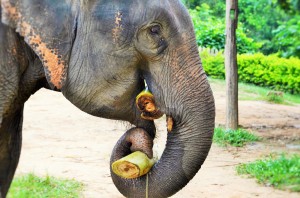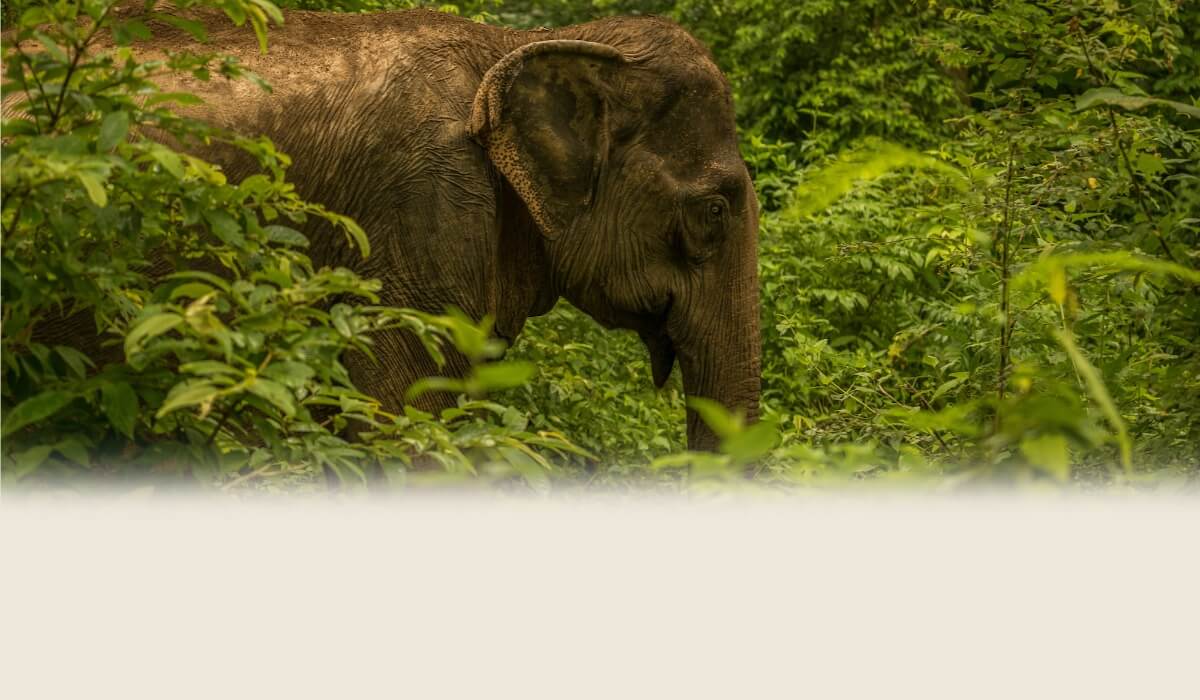Proud members of The International Ecotourism Society
Elephant Village Sanctuary & Resort is immensely proud to announce membership of the oldest and most respected name in ecotourism, The International Ecotourism Society.
We joined on December 2014, and have proven that we can both create a sustainable tourism model whilst also being able to run a successful business that employs many local people who both love and enjoy their jobs as well as receive fair wages and have a safe working environment.
It is important to note as well that by running a successful business without compromising our ethics; we are encouraging other companies to follow in our footsteps.
As it turns out, many countries with endangered species are not particularly wealthy or well off. Generally, most of the population still work as substance farmers, only growing what they need to survive and sell a little in local markets.
Is profit really a dirty word?
It is very easy in the West to only think that charity is the best way to help and that profit is a dirty word. This could be because we in the West have been disenfranchised by big business and the recent economic crash.
However in places like Laos, most ordinary people – the ones who we need to encourage to help save their native species – need money, reliable work and to understand why protecting their native species is so important.
Charity only goes so far and in order to really treat the root causes of these problems, successful & sustainable business is the way forward.
To teach locals that they can provide for their families and create well run business while also protecting and nurturing their natural resources is surely an admirable concept.
Charity is very good and we at Elephant Village definitely definitively appreciate the idea behind it, but it has its place and also more importantly, it has a time limit.
To suggest that a country and its people should be dependent on charity is to do a disservice and really undermines any kind of progress that said country could achieve if it had the right tools to help themselves.
Charity also usually involves the hiring of foreigners to the country in many of the top positions when locals should be the ones getting the jobs.
Of course all of these criticisms can be leveled at private venture in the same way, but what is important is to realize that both charity and ethical business have their place, and a mixture of the two will inevitably be better than just relying on one or the other.
Ethical business
There are certainly very legitimate concerns surrounding private business, with its image of stealing resources, both human and natural, and only thinking about profit at the expense of everything else.
Luckily however, we have organizations such as The International Ecotourism Society (TIES), who can help to validate a business and monitor how ethical or ‘eco’ it really is.
By joining this organization, Elephant Village has been able to show our guests that our model is one that can and should be recreated in this region.
Before we joined, we had already followed our own very strict, self imposed rules about the well-fare of our elephants and staff; but by having TIES behind us, we can show that we are committed to a model of tourism that creates a well rounded and sustainable methods of business.
We also have the added benefit of being in the position to always make sure our elephants are looked after. If we solely relied on charity we would always be worrying about getting donations and always on the look out for new benefactors. However as it stands we are in a great position to be able to reinvest much of our profit into projects that can directly benefit everyone involved (including our elephants as well of course!).
How can you make a profit and still help your elephants?
That is a good question and one that should be answered by looking at the history of elephants in Laos and to a smaller extent, the whole region.
Elephants have had a long history of being used as heavy lifting machines & representations of power for royalty.
From heaving freshly cut down trees to processing factories all the way to being used as heavy tanks for warfare; the Asian elephant has always been used as a tool in all the historical interactions with humans.
This is even more so than the African elephant which has not been used to the same degree, (they have the unfortunate job of being poached for ivory which happens less with Asian elephants).
What Elephant Village tries very hard to do is to create a situation where we can show to all Lao people that it is possible to run a successful business while still caring about the environment and making sure every animal and human under our care is well looked after and respected.
By giving our staff a fair wage whereby even in the low season when we have many less customers we still keep them on our payroll when many other tour operators only pay when they come on tour and we provide management positions to local staff.

Mae Uak stepped on a landmine before we rescued her and requires constant medical attention. We can provide this because we reinvest money into medicines among other things.
We also make sure that we keep our impact on the society here very low by purchasing all the food for our elephants from the surrounding villages.
This is beneficial for two reasons. Firstly it means that we can cut down on transporting their food over long distances which causes pollution and requires many km of roads among other things.
Secondly, it means that we can keep alive the traditional farming occupations of the local villages alive, instead of creating a situation where all villagers work in service jobs and forget their farming roots.
This may sound a bit patronizing to people from outside of Laos but it is very important for people here because Laos has only relatively recently been open for tourism in the past 20 years (the past 10 have seen a rapid expansion).
It is very important that we help to transition Lao society from an agrarian one to a service industry one, but this must be done slowly, respectfully and still making sure to keep their self sustaining farming industry alive and healthy, (farming being integral to Lao culture).
We are also one of the few tour operators in town that is owned by Lao people and includes management positions for local Lao people both in Luang Prabang as well as the village we operate from, Ban Xieng Lom.
This ensures that we can help to make employment in Laos a sustainable proposition by training locals for high value job positions, instead of only offering low quality, low wage occupations.
Conclusion
It may sound like we are very anti charity in this post, but that could not be further from the truth and we certainly don’t think in terms of charity or business but rather a mixture of the two.
We actually accept donations ourselves to buy new medicine and more food for our elephants so we certainly respect charity and the idea behind it.
the purpose of this post is really to try and get across that in order to really help a country to improve, business (notably ethical business) is a very good route to pursue.
This is actually true of many other countries including those in the West and the new rising economies like China and Brazil etc.
If you enjoyed this post then please remember to like us on Facebook and share this to your friends. You can also see our profile on The International Ecotourism Society website and also check out some other members in order to do some research for your next trip!
You can also comment and we would love to hear what you think about the relationship between charity and ethical business.




